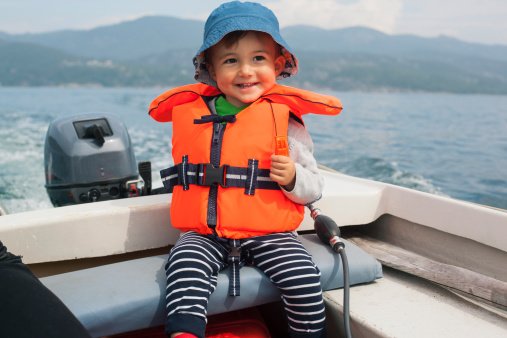 No matter how much knowledge and experience you have, it’s never a bad idea to brush up on boater safety. Elements of wind, weather and water can mean rapidly changing conditions that can put you in harm’s way, so play it safe.
No matter how much knowledge and experience you have, it’s never a bad idea to brush up on boater safety. Elements of wind, weather and water can mean rapidly changing conditions that can put you in harm’s way, so play it safe.
1. Check weather conditions
Be observant: if you notice dark clouds, choppy water, or sudden changes in the temperature, you should stay off of the water until things calm down.
2. Carry a check list
Boaters need to be prepared for any possibility, so it’s critical to know safety rules and to be properly equipped. Common sense is really the best weapon in your safety arsenal! This means knowing when weather conditions should cancel your recreation, operating at a safe speed, staying alert on the water, steering clear of other – especially larger – watercraft, and making sure that your boat is in good condition so you are able to stop, steer, and turn as called for. Save the alcohol for later. The chances of an accident statistically double when alcohol is part of the mix.
3. Don’t go it alone
Make sure more than one person on board is familiar with all aspects of the boat’s handling and understands general boating safety. If you were to be injured or incapacitated, it’s vital to have someone on board who can get the boat safely back to dock.
4. Make proper use of life jackets
The majority of drowning victims in boating accidents were caught without their life jackets and many were strong swimmers. Every person on the boat should be fitted for a life jacket and buckle it on before departure.
5. Refresh your skills
Boater education requirements vary from state to state, but it’s never a bad idea to refresh your skills and know the regulations in the area you boat in. Local communities have boating safety educational opportunities, and there are also many excellent online courses to help educate recreational boaters.
6. Vessel safety check
The U.S. Coast Guard offers a free vessel safety check, both in person and online. This can help you know that you’re carrying the required safety equipment and that your boat is seaworthy. They will make practical recommendations to help keep you safer on the water.
Photo credit: Boy enjoying boat ride By Sverre Haugland, Getty Images








